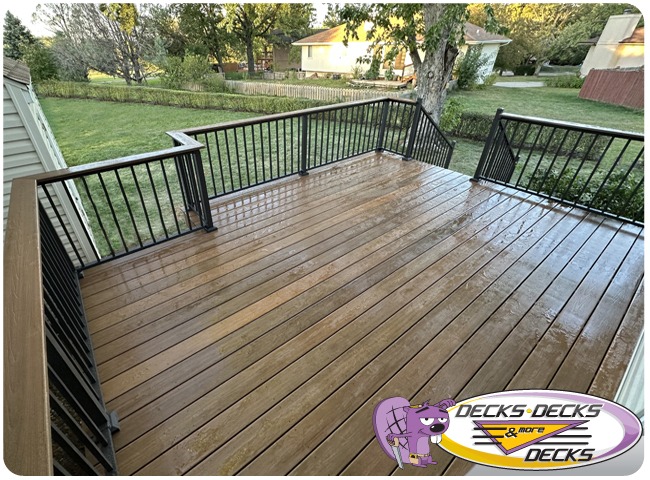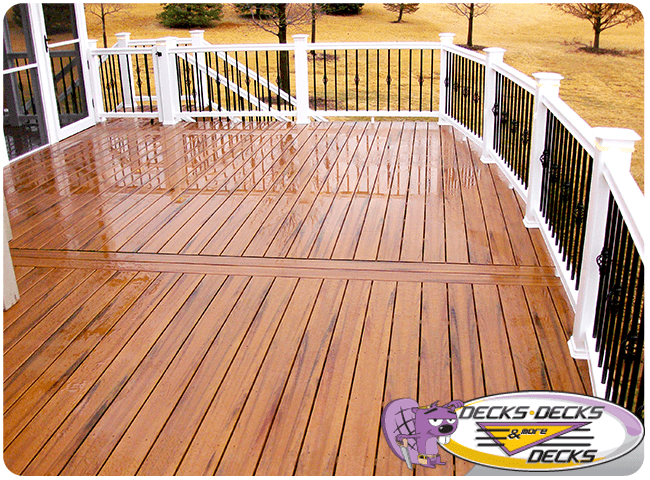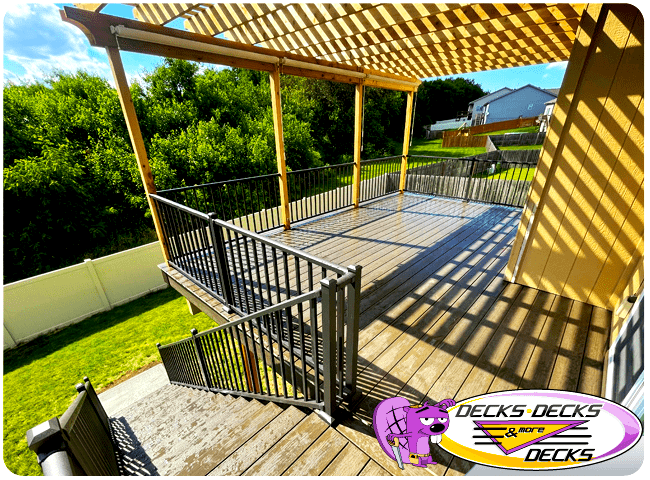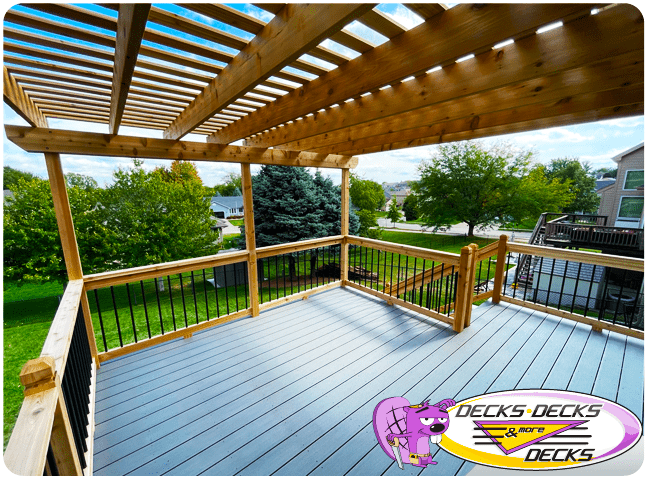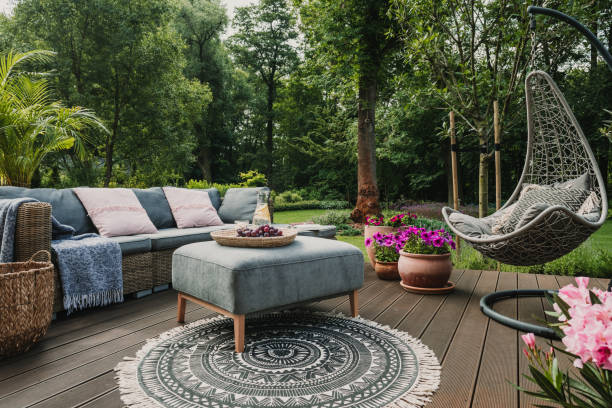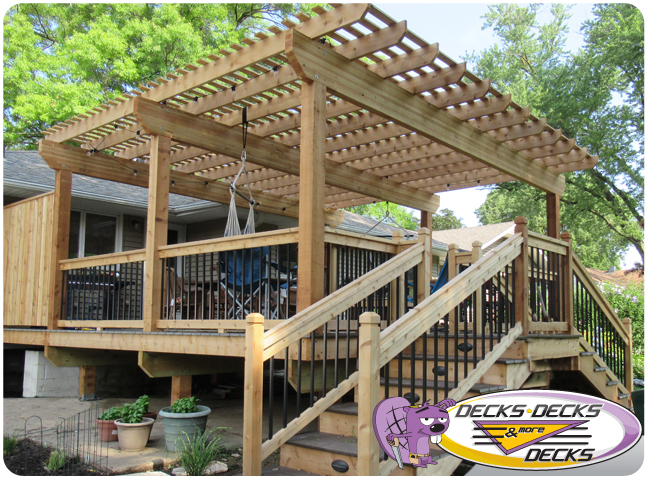Deck Building in Bellevue: Let Pros Handle Your Project
Building a deck can transform your outdoor space into a beautiful and functional area for relaxation and entertainment. However, the process can be complex and time-consuming, making it essential to consider professional help for a successful project. Here’s why entrusting your deck-building project to experts at Decks, Decks, and More Decks is the best choice for homeowners in Bellevue.
Why Choose Professional Deck Builders?
1. Expertise and Experience in Bellevue Deck Building:
- Skilled Craftsmanship: Professional deck builders bring years of experience and specialized skills to the table. They are adept at handling various materials, designs, and structural requirements, ensuring that your deck is built to the highest standards.
- Knowledge of Local Codes: Experienced builders are well-versed in local building codes and regulations, ensuring that your deck complies with Bellevue’s standards. This helps avoid potential legal issues and ensures your deck is safe and durable.
2. Customized Design:
- Personalized Solutions: Professionals work with you to design a deck that matches your vision and complements your home’s architecture. They can offer creative solutions and design ideas that you might not have considered.
- Material Selection: With access to a wide range of materials and finishes, professional builders can help you choose the best options for your needs, whether you’re interested in traditional wood, low-maintenance composites, or modern PVC.
3. Quality and Safety:
- High-Quality Construction: Professional builders use top-grade materials and advanced techniques to ensure a high-quality, long-lasting deck. They also employ best practices for construction, reducing the risk of issues down the line.
- Safety Assurance: Building a deck involves complex structural work. Professionals ensure that all safety measures are in place, including proper load-bearing, secure attachments, and compliance with safety regulations.
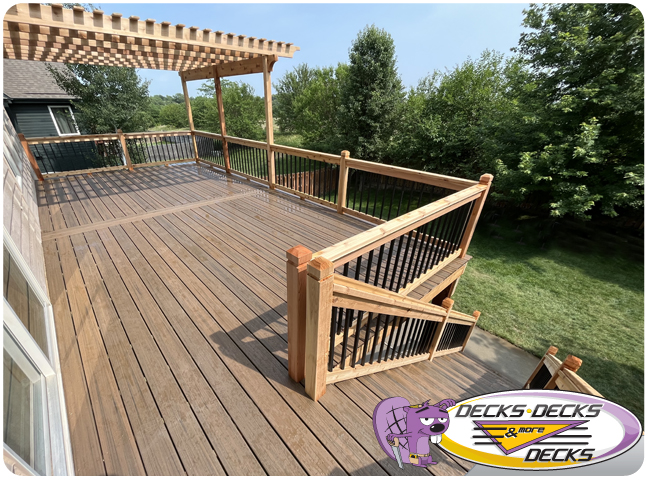
4. Efficient Project Management:
- Timely Completion: Experienced builders manage the entire project from start to finish, ensuring it is completed on time and within budget. They handle all aspects, including permits, scheduling, and coordination with subcontractors.
- Problem Solving: Professionals are skilled at addressing any unexpected challenges that may arise during construction, ensuring that your project stays on track.
5. Cost-Effectiveness:
- Avoid Costly Mistakes: DIY projects can lead to costly mistakes if not executed correctly. By hiring professionals, you avoid potential issues that can arise from incorrect measurements, poor workmanship, or subpar materials.
- Long-Term Value: Investing in professional construction often results in a higher-quality deck that enhances your home’s value and provides better long-term benefits.
Why Bellevue Homeowners Trust Decks, Decks, and More Decks for Deck Building
1. Local Expertise:
- As specialists in the Bellevue area, Decks, Decks, and More Decks understand the unique needs and preferences of local homeowners. They are familiar with Bellevue’s climate, regulations, and architectural styles, ensuring that your deck is perfectly suited to the area.
2. Comprehensive Services:
- From design and planning to construction and finishing, Decks, Decks, and More Decks offer a full range of services to handle every aspect of your deck project. Their team of experts ensures a seamless experience and a stunning final result.
3. Customer Satisfaction:
- With a reputation for excellence and a commitment to customer satisfaction, Decks, Decks, and More Decks prioritize your needs and work closely with you throughout the project. They are dedicated to delivering results that exceed your expectations.
Conclusion
Building a deck is a significant investment in your home, and working with professionals like Decks, Decks, and More Decks ensures that you get the best possible results. Their expertise, quality craftsmanship, and comprehensive services make them the ideal choice for Bellevue homeowners looking to enhance their outdoor living space.
For a seamless and successful deck-building experience, contact Decks, Decks, and More Decks. Let the pros handle your project and enjoy a beautiful, functional deck that adds value and enjoyment to your home.



